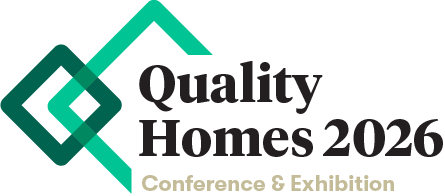5 July 2024
A deep understanding of legal ownership is pivotal for effective asset management and attracting investment. Additionally, it is a fundamental yet overlooked strand to the foundations of the regulatory requirement to keep and maintain an accurate and up to date ‘Assets and Liabilities Register’.
Legal ownership underpins strategic decisions, risk management, and financial planning, ensuring sustainable growth and stability. Through the lens of asset management and investment, clear legal ownership translates into enhanced property optimisation, investor confidence and regulatory compliance.
Asset Management
Optimise Assets: Legal ownership clarity allows housing associations to make informed decisions about their property portfolios. This ensures that assets are used efficiently and generate maximum value to support strategic objectives and ambitions.
Maintenance and Upgrades: Housing associations can prioritise investments in properties they fully own, ensuring resources are allocated effectively. This prevents the risk of investing in properties with unclear ownership, which could lead to legal disputes and financial losses.
Property Disposals: Accurate legal ownership details are crucial when housing associations look to dispose of properties as part of their asset management strategy, whether by stock transfer or other means. Clear ownership records ensure smooth transactions that maximise financial returns that can be reinvested into existing and future homes.
Attracting Investment
Investor Confidence: Secure legal ownership is a key factor for attracting investment. Financial institutions and investors always seek assurance that the properties they are investing in are legally owned by the housing association. This reduces risk and enhances investor confidence, facilitating access to funding for new developments and improvements.
Strategic Planning: Ownership details can identify potential for redevelopment, infill development, or repurposing existing properties to better meet community needs. It also facilitates enhanced partnerships to provide better homes and communities. Opportunities for implementing energy-efficient measures, retrofitting, and sustainability projects often depend on clear legal ownership and the ability to leverage related incentives.
Financial Stability: Clear ownership records enhance the financial stability of housing associations by making it easier to secure loans and grants. It enables a ‘property first’ approach to secured borrowing which can lead to better loan terms and increased funding opportunities. This financial stability is crucial for the long-term sustainability of the association.
Regulatory Compliance and Risk Management
Regulatory Compliance: The Regulator expects all housing associations to have a strong grasp of their property portfolios. Understanding both the legal and physical state of each home is critical to the ‘Assets and Liabilities’ regulatory requirement.
Risk Mitigation: Only through understanding this legal ownership, can there be assurance that there are no surprises with homes that have dropped off lists through stock transfers, mergers, shift in systems or any other means. This mitigates the risk of forgotten/unknown residents together with the legal responsibility as landlords to legally owned homes.
In summary, understanding legal ownership threads impacts every department in an organisation and investing in getting this right, will strengthen housing associations with regulatory compliance, risk management, and financial planning while unlocking opportunities for growth, sustainability, and improved resident outcomes.
Yogeta Partridge
Director, Rydeo Consulting Limited
Yogeta has been in the housing sector for almost two decades. She is a solicitor by trade, who started working with the sector whilst at a main sector law firm – acting on behalf of housing associations and lenders using properties to secure against debt. She then had an opportunity to do a six month secondment at L&Q – which turned into a 13 year career. Whilst at L&Q, Yogeta created and embedded a robustly governed thread that flowed through the lifecycle of the homes from land to development through to treasury to optimise future financial opportunities – including the granular detail on legal ownership for L&Q’s entities. For the wider sector, Yogeta created and led two working groups to encourage greater collaboration and open forums to discuss and overcome obstacles, identify solutions and share best practices. These two working groups, ‘Legal Treasury Group’ for housing associations and the connected group ‘Property Finance Working Group’ with law firms and valuers, continue to strongly benefit the sector.
Yogeta’s passion to use her expertise and skillset to help more housing associations and benefit the wider sector led her to create her own consultancy, Rydeo Consulting Limited, in June 2023. Through Rydeo, Yogeta is currently working with housing associations as a consultant to executive teams, carrying out independent reviews of existing processes and procedures to identify and embed efficiencies, and using her expertise as a resource to project manage transactions whilst creating and embedding proactive strategies to reduce the ‘reactive nature’ of these transactions. Yogeta is also providing her expertise, through Rydeo, to other organisations to identify wider sector solutions to some of the many challenges.


